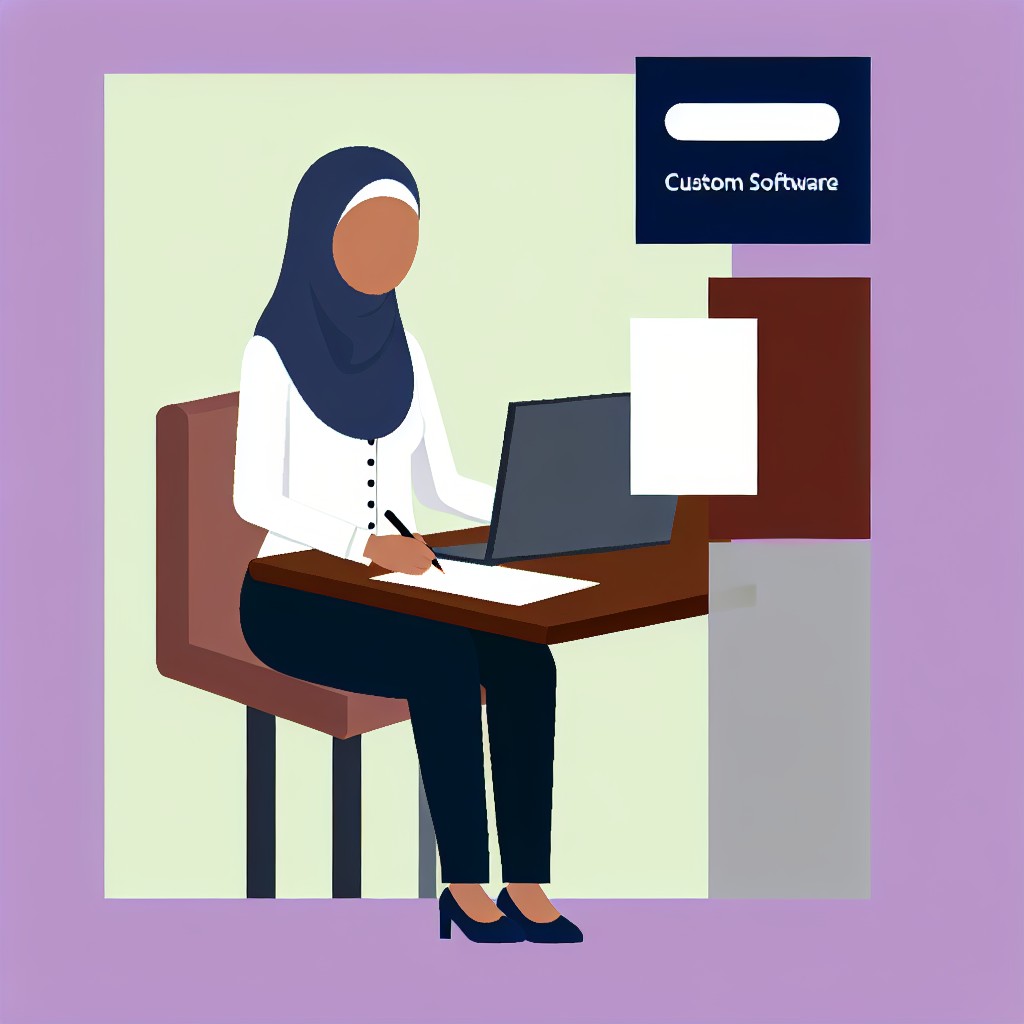Introduction to Data Compliance and Its Importance in Modern Business
Definition and Scope of Data Compliance
Data compliance involves adhering to laws and regulations regarding data handling.
It ensures companies protect sensitive information responsibly and securely.
Compliance covers data collection, storage, processing, and sharing practices.
Moreover, it applies to various industries such as healthcare, finance, and retail.
Significance of Data Compliance in Business Operations
Modern businesses rely on data for decision-making and customer engagement.
Ensuring data compliance builds trust with customers and partners.
Non-compliance can lead to legal penalties and significant financial losses.
Additionally, compliance helps protect company reputation and competitive advantage.
Emerging Challenges in Data Compliance
Regulations constantly evolve to address new technology and cyber threats.
Companies must adapt quickly to remain compliant with changing laws.
Data volumes and variety complicate the implementation of compliance measures.
Furthermore, global operations require adherence to multiple regional regulations.
Role of Technology in Supporting Data Compliance
Custom software solutions offer tailored approaches to managing data rules.
They automate compliance checks and enhance data monitoring capabilities.
Integration with existing systems ensures consistent enforcement of policies.
Consequently, technology reduces human error and increases operational efficiency.
Overview of Custom Software and Its Differences from Off-the-Shelf Solutions
Defining Custom Software
Custom software refers to applications developed specifically for a single organization.
It addresses unique business processes and particular requirements directly.
Therefore, custom solutions provide tailored functionality that standard products lack.
Companies like Sterling Financial use custom software to meet strict regulatory demands effectively.
Characteristics of Off-the-Shelf Software
Off-the-shelf software offers pre-built features designed for a wide audience.
It suits general needs but often cannot address niche business rules fully.
Organizations such as Broadview Industries may find these products limiting due to generic workflows.
Additionally, updates and changes depend on the vendor’s schedule and priorities.
Key Differences Between Custom and Off-the-Shelf Software
Custom software adapts precisely to an organization’s existing infrastructure.
Conversely, off-the-shelf solutions require businesses to adjust their processes to the software.
Moreover, custom development allows greater control over data security and compliance features.
In contrast, off-the-shelf products may implement one-size-fits-all compliance measures.
Also, custom software enhances integration with legacy systems owned by companies like Horizon Tech.
Meanwhile, off-the-shelf programs may face compatibility challenges and require workarounds.
Factors to Consider When Choosing Custom or Off-the-Shelf Software
Organizations prioritizing flexibility often benefit more from custom-built software.
Such companies include Aurora Pharmaceuticals, committed to meet specific data compliance needs.
In contrast, smaller firms or startups may prefer off-the-shelf solutions because of lower upfront costs.
However, investing in custom software can save money in the long run by reducing compliance risks.
Ultimately, the decision depends on factors like business size, compliance complexity, and growth plans.
Put Your Tech Company on the Map!
Get featured on Nicholas Idoko’s Blog for just $50. Showcase your business, boost credibility, and reach a growing audience eager for tech solutions.
Publish NowTailoring Software Features to Specific Regulatory Requirements
Identifying Relevant Compliance Needs
Every industry faces unique data compliance challenges.
Healthcare companies like Meridian Health comply with HIPAA regulations.
Financial firms such as Summit Investments adhere to SEC and GDPR standards.
Therefore, understanding these specific requirements is crucial for software design.
Custom software developers collaborate with clients to pinpoint exact compliance needs.
Designing Features for Regulatory Alignment
Custom software integrates compliance features directly into workflows.
Automated audit trails help companies, including DataCore Solutions, track data usage effectively.
Encryption modules safeguard sensitive information end-to-end.
Role-based access controls limit data exposure to authorized personnel only.
Consequently, tailored features reduce human error and increase security.
Adapting to Changing Regulations
Regulations often evolve, requiring software flexibility.
Custom solutions from firms like Sterling Solutions incorporate modular updates.
This adaptability allows companies to stay compliant without complete system overhauls.
Regular updates make it easier for businesses to meet new legal demands swiftly.
Advantages of Customized Compliance Solutions
- Improved accuracy in meeting regulatory standards.
- Streamlined processes tailored to organizational needs.
- Enhanced data security through specific protective measures.
- Reduced risk of costly compliance violations and fines.
- Greater confidence among clients and partners in data handling.
Learn More: Custom Data Visualization Tools for Executive Insights
Enhancing Data Security and Access Controls Through Custom Solutions
Tailored Security Measures for Unique Business Needs
Custom software enables companies like Meridian Financial to address specific security risks.
It allows developers to implement unique encryption protocols suited to particular data types.
Therefore, businesses can better safeguard sensitive information against unauthorized access.
For example, a healthcare provider can protect patient records with specialized authentication layers.
In addition, custom solutions offer flexibility to adapt security features as threats evolve.
Granular Access Controls for Improved Compliance
Custom software facilitates precise role-based access management for diverse user groups.
This approach ensures employees access only the data necessary for their responsibilities.
Consequently, companies like Stamford Technologies minimize internal risks and data leakage.
Moreover, administrators can easily adjust permissions according to changes in staff roles.
Such dynamic controls simplify meeting strict regulatory standards like GDPR or HIPAA.
Integrating Automation to Monitor and Respond
Custom systems can automate monitoring to detect suspicious activities in real time.
Once a threat is identified, the software triggers alerts to responsible IT personnel immediately.
For instance, Brighton Analytics uses automated logs to track data access patterns continuously.
This proactive approach prevents breaches before they impact critical data assets.
Furthermore, automated reporting supports compliance audits with clear, detailed evidence.
Benefits of Custom Solutions Over Off-the-Shelf Software
Unlike generic software, custom solutions align perfectly with a company’s compliance requirements.
They enable seamless integration with existing IT infrastructure, reducing operational disruption.
Companies such as Evergreen Logistics appreciate the tailored dashboards and control panels.
In addition, custom systems enhance user experience, encouraging employees to follow security policies.
Overall, this results in stronger data protection and smoother audit processes across departments.
Put Your Tech Company on the Map!
Get featured on Nicholas Idoko’s Blog for just $50. Showcase your business, boost credibility, and reach a growing audience eager for tech solutions.
Publish NowSee Related Content: Top Custom SaaS Solutions for Industry-Specific Challenges
Streamlining Compliance Reporting and Audit Processes with Automation
Automating Data Collection and Reporting
Custom software enables automated data collection from multiple sources within an organization.
This automation reduces the manual effort required to gather compliance-related data.
It also minimizes human errors that commonly occur during data entry.
Consequently, compliance teams can generate accurate reports more efficiently.
Moreover, automated reporting ensures timely submission to regulatory authorities.
This capability helps companies like Sterling Financial easily meet critical deadlines.
Enhancing Audit Readiness
Automation creates a centralized repository for all compliance documents and data.
Users can quickly retrieve audit trails, making the review process seamless.
For example, HorizonMed Solutions uses customized software to track every data change automatically.
As a result, auditors receive clear evidence supporting compliance claims.
Additionally, automation alerts teams about missing or inconsistent information proactively.
This early detection allows for quicker corrections, reducing audit risks.
Integrating Compliance Standards and Regulations
Custom software adapts to industry-specific rules and evolving regulations.
It automatically updates workflows to reflect new compliance requirements.
Furthermore, this integration reduces the complexity of managing multiple standards simultaneously.
For instance, GreenTech Energy incorporates automated controls for GDPR and HIPAA within its system.
Therefore, users maintain comprehensive compliance without manual oversight of each rule.
Reducing Operational Costs and Increasing Accuracy
Automating compliance processes decreases reliance on external consultants and manual labor.
This reduction in resource needs leads to significant cost savings for companies.
Besides, automation delivers consistent accuracy, unlike repetitive human tasks prone to fatigue.
DataSecure Analytics experienced a 30% reduction in compliance-related expenses after automation.
Ultimately, investing in tailored solutions benefits both operational efficiency and regulatory adherence.
Explore Further: Using AI to Streamline Complex Inventory Management
Improving Data Accuracy and Integrity Using Customized Validation Tools
Role of Customized Validation in Data Compliance
Customized validation tools ensure data meets specific regulatory standards.
They adapt to unique company requirements and evolving compliance rules.
Consequently, businesses avoid common data entry errors and inconsistencies.
Moreover, these tools streamline the verification process for complex datasets.
Therefore, organizations like Crestview Capital maintain strong compliance records.
Features of Effective Validation Tools
Custom software often incorporates real-time data validation at entry points.
It provides instant feedback to users, reducing inaccurate submissions.
Additionally, validation rules can include format checks, range limits, and mandatory fields.
These rules automatically adapt to industry-specific standards and legal requirements.
For example, Meridian Healthcare uses validation tools to ensure patient data integrity.
Benefits to Data Integrity and Accuracy
Validation tools minimize human errors and improve overall data quality.
Put Your Tech Company on the Map!
Get featured on Nicholas Idoko’s Blog for just $50. Showcase your business, boost credibility, and reach a growing audience eager for tech solutions.
Publish NowThey ensure that data remains consistent and reliable across multiple systems.
As a result, decision-makers receive trustworthy information for analysis.
Consequently, companies reduce risks related to non-compliance penalties.
Furthermore, enhanced data accuracy supports smoother audits and regulatory reviews.
Key Considerations When Implementing Validation Solutions
Developing custom validation requires collaboration between software developers and compliance experts.
This cooperation ensures that validation criteria align precisely with regulatory mandates.
Furthermore, continuous updates are necessary to address changes in data policies.
Everest Analytics recently upgraded their validation system to comply with new financial regulations.
Besides, user training is crucial to maximize the benefits of customized validation tools.
Discover More: Advanced AI Software for Real-Time Business Predictions

Facilitating Scalability and Adaptability to Evolving Compliance Standards
Scalability in Custom Software Solutions
Custom software allows companies like Meridian Analytics to scale their compliance operations efficiently.
As data volume grows, tailored solutions can handle increased workloads seamlessly.
This scalability ensures that businesses maintain compliance without system slowdowns.
Moreover, scalable software supports expanding user bases across new departments or regions.
Consequently, it prevents disruptions during organizational growth or regulatory updates.
Adaptability to Changing Regulations
Compliance requirements frequently evolve due to new laws and industry standards.
Custom software enables TechLine Solutions to adapt quickly to these regulatory changes.
Developers can modify features and workflows without waiting for public software updates.
This flexibility reduces the risk of non-compliance and costly penalties.
Additionally, it supports ongoing audits by keeping records aligned with the latest rules.
Benefits of Continuous Updates and Integration
Custom software accommodates continuous updates tailored to compliance demands.
Integration with emerging technologies, like AI-driven monitoring, enhances compliance efforts.
For instance, SecureCore Technologies integrates real-time alerts to track data breaches instantly.
Such adaptability provides a competitive advantage in managing complex regulations.
Furthermore, it empowers compliance teams to respond proactively instead of reactively.
Collaborative Development for Compliance Success
Collaboration between compliance officers and developers ensures practical software solutions.
At Innovara Systems, teams work closely to incorporate specific regulatory needs.
Clear communication streamlines customization and speeds up regulatory response time.
As a result, companies achieve a better fit between compliance policies and software tools.
This collaboration fosters continuous improvement aligned with evolving standards.
Reducing Compliance Risks and Potential Penalties with Proactive Monitoring
Enhancing Data Oversight through Custom Software
Custom software enables organizations to actively monitor their data handling processes.
It tailors monitoring tools to match specific regulatory requirements efficiently.
For example, Clearwater Systems developed a tool for Sterling Capital Partners.
This tool detects irregularities before they escalate into breaches or fines.
Moreover, such software offers real-time alerts for any suspicious data activities.
Put Your Tech Company on the Map!
Get featured on Nicholas Idoko’s Blog for just $50. Showcase your business, boost credibility, and reach a growing audience eager for tech solutions.
Publish NowIdentifying Compliance Gaps Early
Proactive monitoring uncovers potential compliance gaps promptly.
Marshall & Co. helped MediWell Health to implement this strategy.
They designed dashboards that highlight deviations from compliance policies instantly.
This early identification minimizes risks and reduces exposure to penalties.
Additionally, ongoing audits become simpler with integrated monitoring features.
Automating Compliance Reporting
Custom solutions automate the generation of compliance reports on demand.
DataSure Analytics created an automated reporting module for Zenith Energy Holdings.
The module compiles accurate reports, saving time and reducing human error.
Consequently, regulatory submissions become more reliable and consistent.
This automation supports timely responses to audits and regulatory inquiries.
Streamlining Response to Compliance Issues
Proactive monitoring equips teams to react swiftly to compliance incidents.
Innovatech Labs integrated automated workflows to guide Summit Logistics.
These workflows assign tasks and track remediation progress effectively.
Thus, companies can resolve problems before regulators take action.
It also improves communication between compliance officers and operational departments.
Building a Culture of Data Responsibility
Proactive monitoring fosters a culture of data responsibility within organizations.
It encourages transparency and accountability among departments handling sensitive data.
Clearview Consulting reports increased client trust after implementing such systems.
Furthermore, it supports business continuity through consistent compliance practices.
Ultimately, this approach provides a competitive edge in regulated industries.
Case Studies Highlighting Successful Custom Software Implementations for Compliance
Healthcare Provider Enhances HIPAA Compliance
MedicaCare Solutions implemented a custom software platform tailored to HIPAA regulations.
The system automated patient data encryption and access logging.
Consequently, MedicaCare reduced unauthorized access incidents significantly.
In addition, the platform provided real-time compliance audits.
This allowed compliance officers to quickly identify vulnerabilities.
Furthermore, staff training modules integrated into the software improved policy adherence.
MedicaCare enhanced data security while streamlining compliance workflows.
Financial Services Firm Streamlines GDPR Compliance
TrustPoint Financial developed bespoke software to manage European customer data under GDPR.
The application automated consent management and data subject requests.
As a result, TrustPoint reduced manual processing time and errors.
Moreover, the software featured thorough data audit trails for transparency.
This enabled efficient reporting to regulators when required.
Simultaneously, built-in data anonymization tools limited exposure of sensitive information.
TrustPoint improved customer trust and regulatory compliance simultaneously.
Manufacturing Company Meets CCPA Requirements
Anderson Manufacturing partnered with a software vendor to create a compliance-specific solution for CCPA.
Put Your Tech Company on the Map!
Get featured on Nicholas Idoko’s Blog for just $50. Showcase your business, boost credibility, and reach a growing audience eager for tech solutions.
Publish NowThe system tracked California resident data and managed opt-out requests effectively.
Additionally, the software generated regular compliance reports for internal use.
Consequently, regulatory audits became less time-consuming and more transparent.
Thanks to custom alerts, the company promptly addressed potential data breaches.
This proactive approach minimized legal risks and protected the company’s reputation.
Anderson Manufacturing gained confidence in fulfilling complex regulatory demands.
Retail Chain Improves PCI DSS Compliance
Garrison Retail Group implemented custom payment processing software focusing on PCI DSS standards.
The software ensured secure credit card data handling and encryption throughout transactions.
It also included automated vulnerability scanning and reporting features.
Therefore, Garrison significantly lowered the risk of payment data breaches.
Customer trust increased due to enhanced data protection measures.
Internal compliance teams benefited from simplified audit documentation generation.
Tailored solutions empowered Garrison to meet stringent payment security regulations.
Cost-benefit Analysis of Investing in Custom Software for Data Compliance
Initial Investment and Development Costs
Developing custom software requires a significant upfront financial commitment.
GreenWave Analytics allocates substantial budgets to tailor compliance tools.
Custom solutions avoid costly licensing fees related to off-the-shelf software.
Tailored systems reduce the need for frequent manual adjustments.
Companies save time and resources during early stages of implementation.
Long-term Savings and Efficiency Gains
Custom software automates compliance workflows, minimizing human error.
For example, tech enterprises like NovaStream report fewer penalties for data breaches.
This automation boosts employee productivity by reducing repetitive tasks.
Precise control leads to better data management and auditing capabilities.
Over time, these benefits translate into significant cost savings and risk reduction.
Adaptability and Future-proofing Costs
Regulations continuously evolve, requiring flexible compliance solutions.
Custom software adapts quickly to new legal requirements without major overhauls.
Organizations like Solara Finance avoid costly system replacements because of this flexibility.
Generic software often demands expensive upgrades or patchwork fixes in contrast.
Investing in custom solutions enhances long-term sustainability and lowers future costs.
Value of Enhanced Security and Compliance
Data breaches carry high costs from fines, reputation damage, and legal actions.
Custom software strengthens security by addressing unique organizational vulnerabilities.
For instance, Apex Pharma significantly reduced compliance incidents using bespoke platforms.
Improved compliance lowers risk and protects company assets and customer trust.
Tailored solutions offer vital value beyond immediate financial metrics.
Financial Benefits from Tailored Compliance Software
- Initial costs are offset by long-term savings and risk mitigation.
- Custom software reduces manual efforts and expenses caused by errors.
- Adaptive systems prevent costly penalties for non-compliance.
- Enhanced security safeguards organizational reputation and assets.
Ultimately, custom software investments deliver measurable financial and operational returns.
Additional Resources
First Advantage: Global Background Checks & Screenings
Put Your Tech Company on the Map!
Get featured on Nicholas Idoko’s Blog for just $50. Showcase your business, boost credibility, and reach a growing audience eager for tech solutions.
Publish NowCustom Software Solutions: Tailored Technology for Business …
Before You Go…
Hey, thank you for reading this blog post to the end. I hope it was helpful. Let me tell you a little bit about Nicholas Idoko Technologies.
We help businesses and companies build an online presence by developing web, mobile, desktop, and blockchain applications.
We also help aspiring software developers and programmers learn the skills they need to have a successful career.
Take your first step to becoming a programming expert by joining our Learn To Code academy today!
Be sure to contact us if you need more information or have any questions! We are readily available.
[E-Books for Sale]
1,500 AI Applications for Next-Level Growth: Unleash the Potential for Wealth and Innovation
$5.38 • 1,500 AI Applications • 228 pages
Are you ready to tap into the power of Artificial Intelligence without the tech jargon and endless guesswork? This definitive e-book unlocks 1,500 real-world AI strategies that can help you.
See All 1,500 AI Applications of this E-Book
750 Lucrative Business Ideas: Your Ultimate Guide to Thriving in the U.S. Market
$49 • 750 Business Ideas • 109 pages
Unlock 750 profitable business ideas to transform your future. Discover the ultimate guide for aspiring entrepreneurs today!
See All 750 Business Ideas of this E-Book
500 Cutting-Edge Tech Startup Ideas for 2024 & 2025: Innovate, Create, Dominate
$19.99 • 500 Tech Startup Ideas • 62 pages
You will get inspired with 500 innovative tech startup ideas for 2024 and 2025, complete with concise descriptions to help you kickstart your entrepreneurial journey in AI, Blockchain, IoT, Fintech, and AR/VR.
We Design & Develop Websites, Android & iOS Apps
Looking to transform your digital presence? We specialize in creating stunning websites and powerful mobile apps for Android and iOS. Let us bring your vision to life with innovative, tailored solutions!
Get Started Today





